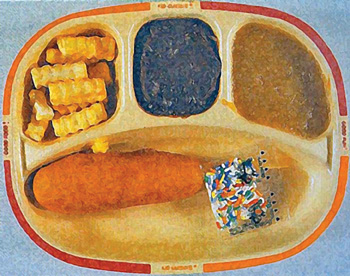Growing Your Own: The Value of Food Independence
People in Montana are often of a very independent mindset. Historically, this was necessary in frontier conditions. This cultural legacy carries through today even with our modern conveniences. And it is to our credit. I have heard some hunters say that, pound for pound, it can be more expensive to hunt when all is considered than to buy meat in the store. Montana gardeners who want to grow exotic vegetables such as tomatoes and peppers here will sometimes invest thousands of dollars in a greenhouse with no expectation of a reasonable payback time frame. (It should be pointed out that it can be done cheaply!) The reason we do this is that we value the skills and means of independence. We also appreciate the qualitative difference in the food, both in taste and nutrition.
Last summer, I traveled back to my birth state in the Southeast for a family reunion. It was at a rural lake cabin and there was a supermarket in the nearby town. Realizing that there were very few, if any, healthy options it was, for me, similar to being in a so-called “food desert”. It wasn’t like a small town grocery store displaying an odd selection of basic supplies. This was a big chain store with a negligible organic section. Obviously it reflected local demand. Was I just an organo-snob, longing for some type of crunchy Bozeman Co-op “shopping experience”? Or was middle America that much more dependent on processed and unhealthy foods than where I live?
On the way back, I suggested we stop at a roadside farmer’s stall and pick up some local produce. I felt a need to connect with the healthier side of the region. People do garden quite a bit in South Carolina, but it is not known for being on the lighter side of the nation’s obesity rankings. The farmed plots were within sight of the stall. Several people manning the market were sitting in the shade, trying to avoid the hot morning sun and moving as little as possible. As I browsed the melons, fruits and vegetables, someone pulled up on a four-wheeler with large bags from Hardee’s. Apparently this was breakfast for the whole crew. There was a noticeable buzz of anticipation as they tore into the wrappings.
I was astounded. These were not inner-city dwellers within shopping distance of only fast food and convenience stores. These people were sitting in the midst of fresh produce practically rotting in the sun and they chose to eat fast food. These were people capable of being more healthy and independent in a food sense, yet they were choosing to be the opposite.
In our civilization, we can be very removed from the sources of our food. Despite it being something that we need to survive, something that can make us healthy or ill, we treat the matter casually and give little thought to the source or consequences. You buy a slice of pizza and think nothing of how the ingredients were grown and what journey they went on to make it to your mouth. We are to such a large part dependent on that abstracted system of supply for something so critical, yet we are clueless about its inner workings.
This can, historically, lead to tragic consequences if that system breaks down or gets disrupted for any reason. Being from the land of milk and honey, we have yet to experience any type of major food disruption in living memory. One only needs to look abroad to see that things can get ugly very quickly over food. Russians often have a weekend summer cabin with a garden plot, presumably a cultural adaptation to periodic food shortages and economic stresses.
It is within our power to become more food independent on a local level, just as it is with our desire nationally to become more energy independent. The benefits are many, and the costs can be minimal (apartment dwellers can join or start community gardens). Growing your own food will reduce your carbon footprint by avoiding energy used in production, transportation and refrigeration. And as food costs go up, your garden may offset your grocery bill noticeably. Making informed choices about organic and non-GMO crops can affect our water and air quality as well. GMO crops are often engineered to be tolerant of more pesticides. Avoiding GMO foods actually reduces runoff and groundwater pollution (that is if they are labeled!).
Part of the problem is that we don’t see these effects, even though we are exposed to them directly and indirectly. If we could see the consequences of every bite, from seed to table, we might choose our food much more carefully at the store. By growing our own food we reconnect with that process, and we learn to protect and nurture the area that our vital food comes from. We also learn to value our food. If we could carry this mindset through to all of the food we consume, it would be safe to say the planet and its inhabitants would be a much healthier place.
As an organic gardener for over 20 years, a student of Environmental Studies, and a Philosopher for life, Joe finds it easy to glean wisdom from the living dirt beneath our feet. He’s also a “green tinkerer”, employed for many years in various sustainable building trades.